A Conversation With Lawrence Block
by Claire E. White
New York Times bestselling mystery author Lawrence Block continues to rack up awards and rave reviews
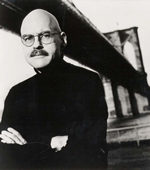
|
Also on the lighter side in the Block repertoire are the books starring Bernie Rhodenbarr, bookseller by day and gentleman burglar by night. Rhodenbarr may be the character which is closest to Block's heart in some ways. In his unbridled youth he actually considered the lifestyle of a cat burglar, albeit briefly (he claims it seemed like a valid career option at the time). Luckily for the reading public, he turned away from the lure of a life of crime and settled into his true calling: writing.
A world away from the insouciant charms of Evan Tanner and Bernie Rhodenbarr is J.P. Keller, the professional hit man, most recently seen in Hit List (William Morrow). Keller is a professional killer with a conscience, an Everyman who suffers all the slings and barbs of everyday life as an Urban Lonely Guy -- except this Lonely Guy kills people for a living. In fact, it's quite alarming how appealing Keller really is, considering his gruesome profession. Hit Man, the first book in the series, which consists of a series of short stories about the character, has been optioned as a major feature film; Jeff Bridges is attached to star as the enigmatic Keller. For hardboiled fans, however, the clear standout of Block's many characters is Matt Scudder, the recovering alcoholic p.i. who roams the mean streets of New York chasing the bad guys and fighting his inner demons. Scudder is clearly the darkest of the series -- it's set in another universe than the Tanner novels, certainly.
The most recent Scudder book, Hope to Die, was just released in hardcover by William Morrow. Hope to Die is a bit of a departure from the other Scudder novels. Several of the chapters are written from the point of view of the killer, who is a very frightening person, indeed. The character of Scudder has evolved over the twenty-five years that Block has been writing about him; perhaps that's one reason for the series' staying power and loyal fan base.
Block is also known for his savvy writing advice, and his bestselling book, Telling Lies For Fun and Profit has just been released as an audiobook which is for sale through his new website, lawrenceblock.com/.
A father of three girls from his first marriage, he and his second wife, Lynne, love to travel, and are provisional members of a club consisting of people who have visited at least one hundred countries. A New Yorker, Block adores the city that never sleeps. But the wanderlust is always there; he and Lynne are off to Antarctica next.
Hope to Die just hit the New York Times bestseller list, and Block's anthology, Master's Choice, just received the Anthony Boucher Award for Best Anthology/Collection at Bouchercon. In our interview, he talks about about Hope to Die and his experience writing the screenplay for Hit Man. He also tells aspiring writers the one thing they must keep in mind when the rejection slips start piling up in the mailbox.
Where were you when the terrorist attacks occurred on September 11th?
We were in our apartment with a fine view of everything that happened. We stayed there all day just watching it unfold.
How are people in New York dealing with the tragedy? What changes in their normal routine have you noticed?
Everybody else is responding to that and I really don't have anything special to add. It's a very difficult time for everyone here.
I'd like to talk about your most recent book, Hope to Die, the latest Matthew Scudder novel, which is just out from William Morrow. Many authors have had their book tours cancelled. Will you be touring for Hope to Die?
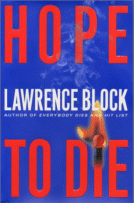
|
Are you nervous about flying, at all?
I can't say that I'm looking forward to all that will be entailed with flying now, but I'm not really nervous about it.
Let's talk about your new book, Hope to Die. Scudder has changed quite a bit from his first appearance over 25 years ago.
He has. He's older now, and has been changed by his experiences over the years. When I started off writing about him, I certainly never dreamed that I'd be writing about him a quarter of a century later, for one thing. But beyond that, I never thought that he would change. Most characters in similar kinds of fiction don't age or change. But because of the level of realism operating in the series, it became clear to me around the fourth book that I couldn't really have him unaffected by his own history as it developed. I couldn't have him not altered by the experiences he would undergo in one book. So things just happened to him, and he's changed and aged, even as you and I.
Maybe love has mellowed him out a bit?
| "I haven't had the classic case of writer's block where you have a long period of time where you just can't write anything at all. There are times, certainly, when I just don't write. I'm never quite certain whether it's appropriate to call that 'writer's block' or not. It has been pointed out that when a plumber doesn't feel like working, he doesn't get to call it 'plumber's block,' after all." |
Certainly coming to terms with alcoholism changes a person.
Yes, and he's been sober a while now.
He also seems a bit more self-analytical now.
It's hard for me to tell. I don't mean to sound disingenuous, but I just write the books without thinking of what it means as I'm doing it.
TJ and Scudder are quite an odd couple. How much do you think about the dynamics of the relationships between the characters you write? Or do you create the characters and just see how well they get along?
I don't think about it a great deal. I think my writing is more intuitive than it is intellectual. So I sometimes liken it to the old story about the moron who found the lost horse when nobody else could. When they asked him how he did it, he replied, "I just asked myself, if I were a horse, where would I go?" I think that's essentially what I do -- I simply ask myself, "If I were this character, what would I do? What would I say?"
The book has more thriller-like elements in it, and we actually get inside the killer's head in a few chapters. How did you put yourself in the mind of a killer?
I haven't done this in any of the Scudder books before. They've all been in first person and everything is seen through Scudder's eyes. In this book I saw, because of the nature of it as it was developing, that it was really necessary to see the bad guy. And when I wrote one chapter like that, I saw immediately that it filled an important function there and it would probably do the book good to do that. So, consequently, there were quite a few scenes done that way.
It was very chilling, I must say. Was it creepy to picture yourself in the killer's mind?
No. I've done things from the point of view of villainous characters before. Certainly one of the central characters in a book of mine called Random Walk was a psychopathic serial killer. Perhaps I should be dismayed to admit it, but I found it to be quite an easy psyche to inhabit.
Without giving anything away, it seems as if the last chapter is setting us up for a sequel.
Well, one never knows. I never know what I'm going to do next. That might happen sometime in the future. I certainly wouldn't rule it out, but I haven't really ruled it in yet, either.
Well, that's certainly going to leave a lot of people hanging! (laughs)
(laughs) Oh, well.
The opening scene of the book is really horrifying. Does it ever bother you writing the grisly scenes, or is it a nice change of pace from say, Bernie Rhodenbarr's life?
I think certainly the various kinds of books I do,
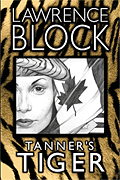 Click here for ordering information. |
So you finally agreed to do your own website: Lawrenceblock.com -- it looks great. Why did you wait so long?
It took a while for me to decide that I really wanted to be that involved in a website. As it is, it's one more non-writing thing that takes a lot of time, effort and attention. As recently as ten years ago, about the only career-related activity I did was write. And now there is just a ton more stuff. Part of it, unquestionably, is that I'm selling more books and I'm more prominent, so there are more requests for interviews, speaking dates and things like that, and more correspondence, but there's also the fact that the very nature of the business has changed. Writing is not the only thing that a writer has to do now. It did take a while to get the site up and running. I didn't want to do a crummy site. I am pleased with the way it's worked out.
On the website, you sell first editions, autographed copies and the like: lots of interesting things that you just can't find at the big chains. What went into your decision to take on some of the selling yourself? How is the ecommerce aspect of the site working out?
It works out fine. We do the order fulfillment ourselves, right now. The order volume isn't that high yet. The cost would be disproportionate at this time to have it outsourced. The intention certainly is not altruistic! (laughs) I hope to sell some books and cover the cost of the site. It's gratifying.
With any new technology, it seems that it is important to get in early. Certainly ecommerce will grow over time.
Well, it's interesting. No one really knows where a lot of this technology is going. I don't know if ebooks are going to amount to anything at all. Nobody knows, so far. So far, they haven't amounted to anything. The number of units sold is really infinitesimal.
That's true. But don't you think that it's mostly about the price? When they get the readers down to, say, $19.99 and you can load 20 books before you get on a long plane flight, maybe everyone will jump onboard.
I understand all that, but I still don't know if it will happen. It might, but it's also possible that it won't.
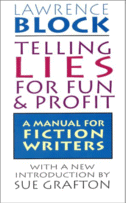
|
Yes, I did, actually. We produced it ourselves. I found a producer of my work. I have narrated many audiobooks of my own for both Harper Audio and for Penguin, when the Burglar books were there. I found that I enjoyed doing it, and it also struck me that Telling Lies was a book that should be on audio and no one had expressed any interest in doing it. I thought that I would self-publish it and see how that worked.
It's not always easy to convince the publisher that you are the right person to record your own book.
It varies very much by publisher. Some publishers think that it adds to the value to have the author read his own work. Some feel very much the other way. I enjoyed doing it well enough. It's absolutely exhausting, though. The first time I did an audio book, it was a very much abridged version for Penguin. It was a three-hour tape, and it took about five hours to record it (which is actually considered very good time). But I came back from that five hour session and I stretched out in bed and slept for 18 hours! I was absolutely wrung out. It does get easier with time; I'll say that. It doesn't take as much out of me now, by any means, as it did early on. It is demanding.
What is the process like? Do you have a director in the booth with you?
Yes. There are one or two people, depending on the operation. Generally, one mans the board and one is the director who catches errors and has you do lines over if you fluff a word or do anything else inappropriate.
So you need some acting skills and -- at a minimum -- a good speaking voice.
I suppose so. I did something recently for the first time. I narrated an audio book for material that I hadn't written. I was the guest editor for Best American Mystery Stories 2001, the Houghton Mifflin anthology. They wanted me to read my introduction for the audio book, and any other stories that I would want to. So I said, "Well, if I'm going to do one, I might as well do them all." (None of the other authors were available to do theirs.) So I did the whole thing: the introduction and about seven or eight stories. That was kind of interesting to do. I don't necessarily see it as a new career on the horizon, but it was fun.
Was it harder to do -- reading someone else's material?
I don't know that it was that much different, but probably a little harder.
One essay in the book is entitled "Writing With Your Eyes Closed," where you sit in front of the computer, imagine the scene and when you get it right, you write it down. Do you still use this method of creation? It sounded a bit like Method Acting to me.
Yes, I suppose I still do a certain amount of that. I don't do it ritually, but I do see scenes in my mind -- perhaps impressionistically rather than photographically -- but yes, to one degree or another I do.
Would you say you are a very visual person?
No, not particularly. I may be in certain ways, but not in others. I frequently fail to recognize people. I'm much more apt to remember a name than a face. I think I'm more verbal than I am visual.
Have you ever faced writer's block? If so, what did you do?
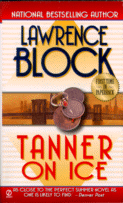
|
What is your advice to aspiring writers who are depressed about having received, say ten rejection letters in a row?
First of all I should say that I know less about this now than I used to, because the business has changed so much over the years. I'm almost half a century away from when I entered this business. So I don't know that much about getting your foot in the door now, compared to the way it was then. I understand that it is more difficult now. On the other hand, you have to understand that it was never easy. I think persistence in the face of adversity is an essential part of a writer's job description. If you don't care enough about it to avoid being easily disheartened that way, you really should be doing something else. And there's nothing wrong with that -- with saying, "I just don't care that much about this." Writing is only a holy calling for you if it is.
You are known for your excellent and realistic dialogue. One mistake many beginning writers make is that all of their characters sound the same. How did you hone your dialogue skills over the years? Or do you think you just have a good ear for dialogue naturally?
There hasn't been anything in particular that I've done. I suspect it's more by way of being a gift. It's not something that I find difficult. I think getting into the voice of a first person narrator is essentially the same thing. I can give an example of that which I found interesting. I wrote seven books in the 1960s about a character named Evan Tanner and then didn't write a word about him for a quarter of a century.
Until Tanner on Ice.
Right. When it was time to write Tanner on Ice, I wondered whether I would be able to get into the voice. I looked at one of the early books, but that was all I did. I didn't do any real preparation. I went off to write it. I holed up in a hotel room and I sat down and I picked up a pen (I didn't take a computer along, I just handwrote this one) and I started writing. It was as if the character had been holed in a couple of otherwise unoccupied brain cells of mine for all the intervening time. The voice was just there. It wasn't something I can take credit for, because it was effortless.
The Evan Tanner books are just hilarious. When do we get to see a new one? I know you're doing something with Subterranean Press?
Thank you. Subterranean is doing hardcovers of all the earlier books; the ones that were never done in hardcover before. I don't know when there will be a new Evan Tanner book. I would hope it won't be another 28 years.
Oh, come on! That's not fair. (laughs)
(laughs). Well, no guarantees. I just don't know. Tanner's Tiger is the next one out. Two For Tanner was Gold Medal's title for The Scoreless Thai. So the book has now been restored to the title I originally had for it.
It's a little confusing about the titles.
It certainly is. The publishers changed the titles of many of my books back then.
Do the publishers give you more say in that now?
Oh, yes. If there is a title that's not good, we work together to find a better one. It's not arbitrary like it once was when I was writing paperback originals for Fawcett Gold Medal in the 1960s.
Let's move on to everyone's favorite assassin: Keller. The last book was last November for Hit List. I understand that the new Keller movie is going forward, and that you actually wrote the screenplay?
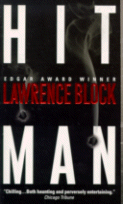
|
Is Jeff Bridges still attached to the project?
Yes, he is.
What challenges did writing the screenplay present? Was it easy? Did you have to get into a different mindset to write for the screen?
The nice thing is that there is a lot less heavy lifting involved. You are talking about one hundred pages instead of four hundred, and the pages only have half as many words on them. Most of the words don't have to be well-chosen, because they are just stage directions. In that respect, it's easier. Which may be part of the explanation as to why so many wannabes today are writing original screenplays rather than books. It certainly takes less time and effort. But it's also a lot more surgically precise, for all the same reasons. I found that I couldn't work on it for more than about two hours at a stretch. After that, I was just really exhausted. It demands a different kind of concentration than novel writing.
Was it difficult to decide what parts of the book to take out, or how to condense the work?
Yes, it was. The function of the producer is to keep telling you to cut more. And he's frequently right, as it turns out.
It seems to me that one type of scene that might be difficult to write is all the interior monologues where we hear what Keller is thinking. Will you use voiceovers?
Right -- those are difficult. There are no voiceovers, but there are ways to suggest what he's thinking with action. The main thing is to maintain the tone and the character's identity, and to get the story told.
And, I suppose, to some extent you just have to trust the actor?
Yes, that's another lesson that I was taught. You don't have to spell it out -- Jeff [Bridges] will make this work. And I know he will. He is a wonderful actor, which helps a lot.
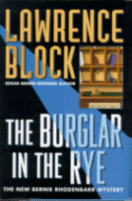
|
It depends on the series. With Master's Choice and Opening Choice, I've selected the authors and requested the material I wanted.
That is a lot of work!
Yes, it is. With the Deadly Sin anthologies, with Cumberland House, I write the lead novella and, aside from that, the people at Tekno Books, who are my partners in this enterprise, assemble stories. I look at them and I essentially approve them -- sometimes there are a couple of stories that I don't like which I knock out -- and sometimes there are a couple stories that I really like that I ask them to see if they can get a hold of. Those are reprint anthologies, except for the novella.
Do you enjoy the process of editing?
I don't do any real editing in the sense of changing text. I like it when the books come out and I hold them in my hands. I felt that they were particularly good volumes, and that some of their strength was the result of my contribution. But what I mostly like is writing. And I don't even like that all of the time! (laughs)
When do you not like writing?
When it's not going well. It really doesn't get easier over the years. I don't think it's supposed to. I think if it ever gets easy, that means you're not stretching.
Another favorite of your characters is Bernie Rhodenbarr, the gentleman burglar/bookstore owner. It is really true that you once considered a career in burglary? That story has become a bit apocryphal.
Well, yes. It's probably best to let people think it is apocryphal. (laughs) But yes, I was considering it. I wasn't set up to do much else, and the writing just wasn't going well.
What's next for Bernie?
I don't know. The next book in the works -- I have a chunk written -- is a multi-view New York thriller. If all goes well -- and I can't imagine why it should -- it will be probably be published in the winter or spring of 2003. The next Bernie Rhodenbarr will probably follow that a year later.
The multiple point view book -- now that's not a series book? Is that part of what you were talking about -- stretching yourself as a writer?
I suppose so. It's a book I've been thinking about for a long time.
You are so prolific, yet seem to find time for a family life as well. How do you juggle professional and private lives (especially with all the touring and traveling you do)? Do you set priorities or a rigid schedule? Or do you just wing it?
| "[T]he change in the number of publishing houses is extraordinary. There used to be dozens; now there are only a handful. There are any number of successful novels which were rejected by twenty-five houses before they found a publisher. But the only way that could happen now is if each house rejected the manuscript five times. How are you going to even find twenty-five houses to send your manuscript to?" |
Do you take your computer with you when you travel?
No.
Has the technical revolution affected you at all?
Yes, I've been online now for six or seven years now. I've been on computers for a couple of years before that. I like computers and the Internet. In 1997, I went off and hand wrote a book, though. It wasn't all that much different. The hardest part is deciding what words to put down, not how you put them down. But I usually compose directly onto the computer. I never have re-written much.
Have you visited 100 countries yet?
No. If all goes well, we'll do that just before the first of the year. We're off to a cruise to Antarctica and that will do it.
Is there anyplace that you haven't been that you still want to see?
We want to go everywhere. When my wife and I were first keeping company, I guess we were engaged, as an exercise one day we said let's make a list of all the places we'd like to go to. We abandoned this project about ten minutes into it though, when we realized that all we were doing was putting down the name of everyplace we'd ever heard of.
And now you're in the process of going to every place you've ever heard of.
We're certainly trying.
What do you like to do when you travel?
Different things. When we go to fairly inaccessible places, we do group, organized travel. That makes life a lot simpler. We usually go with a group which is limited to about fifteen people or so. It's not the pain that the huge travel groups are. If it's in Europe, we really like to travel around the country by train.
You mentioned earlier about how much the publishing industry has changed. What is the biggest change you've seen?
There are a million changes. Other people are better able to comment upon them than I am. But certainly the change in the number of publishing houses is extraordinary. There used to be dozens; now there are only a handful. There are any number of successful novels which were rejected by twenty-five houses before they found a publisher. But the only way that could happen now is if each house rejected the manuscript five times. How are you going to even find twenty-five houses to send your manuscript to? We are at a point where anyone over the age of thirty-five who loses a job in publishing is probably never going to get another. It's like that. That's one of the reasons why there are so many agents now. An agent oftentimes is merely a code word for an editor without a job. Or many of those people become freelance editors.
Would you write another screenplay?
Absolutely. I enjoyed doing it.
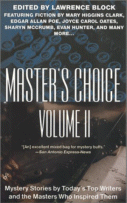
|
That's true. What I would most like to do next, as far as screenwriting is concerned, is not something of my own, but to rewrite someone else's script which was based on someone else's material. I think it would be easier that way to be detached from the work.
If it's your work, I guess it could be painful to watch it adapted.
It is a bit painful. But if it's going to be that painful, you really should be doing something else. Even if you're able to detach from your own novel, you will still see it from your viewpoint. You will still see it in some limiting ways, which might not be true if you were working on someone else's work.
It seems that if, in general, Hollywood has been quite unfriendly to novelists who wish to adapt their own works for the screen.
Well, that depends on the producer and how he sees things.
Growing up as a boy, were there any books you read that stood out in your mind?
Not particularly. In my teens I read a lot of the giants of 20th century realism. Most of the classics remain unread by me, I'm afraid. I always knew I wanted to be a writer since I was fifteen. Precipitating factors. Don't know what inspired it.
 |
Well, I guess burglary is out. I don't know. I'm not really sure.
Is there anything else you'd like to say to your readers?
I am certainly grateful to them for keeping food on my table for all these years.
More from Writers Write
Stephen King Quotes
quotes from the master
quotes from the master
Grammar Tips
improve your writing
improve your writing
Writing Prompts
spark your creativity
spark your creativity
